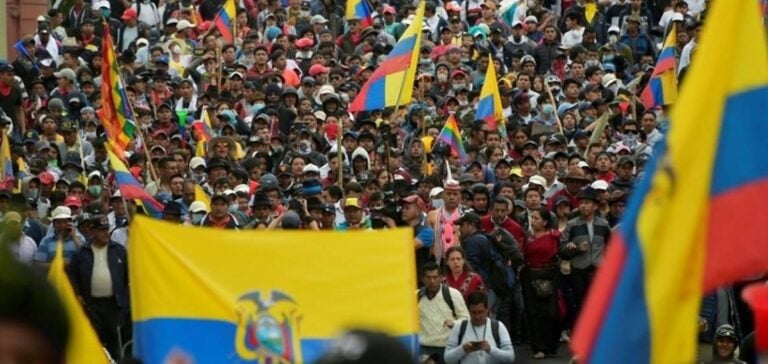The Ecuadorian government has announced an 11% increase in the price of gasoline, aimed at reducing costly subsidies and bringing prices into line with the international market. This measure is due to come into force at the end of June, and will be accompanied by a compensation mechanism for certain sectors.
Background and reasons for the increase
The increase, announced by Deputy Economy Minister Ana Cristina Avilés, will take the price per gallon of gasoline from $2.46 to $2.72. Transport Minister Roberto Luque explained that the aim of this measure is to reduce fuel subsidies, which represent a significant financial burden for the State. Fuel subsidies have long been a controversial issue in Ecuador. Previous attempts to eliminate these subsidies by Presidents Lenin Moreno and Guillermo Lasso triggered violent protests, led by Conaie, the country’s largest indigenous organization. In 2018, Lenin Moreno liberalized the price of premium gasoline, which currently stands at around $4 per gallon.
Impact and reactions of local players
The current decision includes a compensation mechanism for sectors such as road transport, guaranteeing a maximum increase of 5% in line with the international price of oil. However, this measure has not allayed concerns. Several social organizations are opposed to this increase, claiming that the elimination of subsidies is a condition imposed by the IMF (International Monetary Fund), which recently approved a $4 billion loan for the country. The government denies these allegations. The administration of President Daniel Noboa, in office since last November, has decided to maintain subsidies for diesel and gas for domestic use, which could partially mitigate the negative impact of this increase on households.
Economic and social consequences
Rising petrol prices are likely to have a significant impact on the cost of living in Ecuador. Prices for transport and everyday consumer goods could rise, putting even more pressure on Ecuadorian households already affected by inflation and the economic crisis. What’s more, this decision could rekindle social and political tensions, while the memory of the violent protests in 2019 against the removal of subsidies is still fresh in the collective memory. Social and indigenous organizations may organize further demonstrations to protest against this measure.
Future prospects and challenges
The Ecuadorian government must navigate carefully to avoid escalating social tensions. The implementation of compensation measures and dialogue with social players will be crucial in minimizing the negative impact of this price increase. Ecuador must also strive to strike a balance between the need to reduce costly subsidies and the need to protect vulnerable households. Economic reforms must be accompanied by sound social policies to ensure a fair transition to fuel prices more in line with the international market.
The outcome of this situation will largely depend on the government’s ability to manage the social and economic repercussions of this decision, and to maintain stability in an already fragile political context.






















